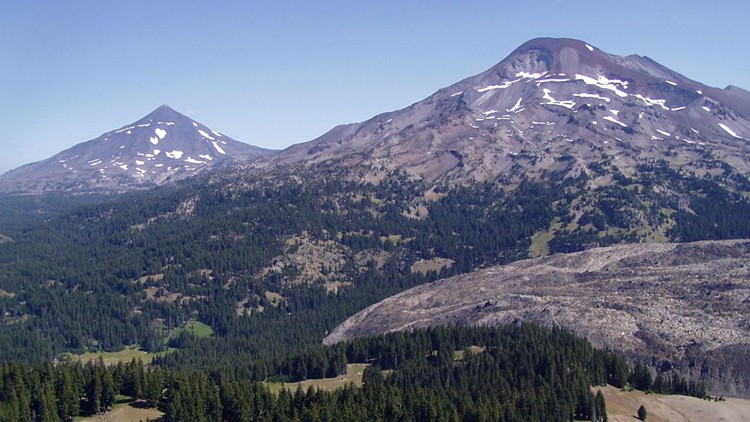SALEM, Ore. — It wasn't the smoothest first season for a sweeping new permit system meant to limit crowding in three of Oregon's most popular wilderness areas, so the U.S. Forest Service is making some changes for the summer of 2022, the agency announced Tuesday.
The agency required anyone day-hiking popular trails and camping anywhere across the Three Sisters, Mount Jefferson and Mount Washington wilderness to get a permit in advance in 2020.
The system was marred by confusion, technical glitches and hikers not using large numbers of the permits they purchased, which resulted in fewer people being able to hike and camp, officials said.
"We always knew we weren't going to get it exactly right straight out of the gate," Forest Service spokeswoman Jean Nelson-Dean said. "The changes we've made should help increase accessibility, make the reservations less confusing and align the permit season with when people are typically going."
Permits are mainly purchased through Recreation.gov.
Permit season dates change
The permit season will be in place June 15 to October 15, instead of the Friday before Memorial Day to the last Friday in September.
That means anyone entering the 450,000 acres of wilderness backcountry during those dates will need overnight permits if they plan on camping, or a day-use permit if they plan on hiking from 19 of the most popular trailheads.
"Last year people had permits in early June that were unusable due to snow and road conditions," the Forest Service said in a news release, "while the wildernesses were accessible in early October."
A large number of people bought permits for the McKenzie Pass area in 2020, only to discover the highway to the trailheads hadn't yet opened.
Day-use permits only available 10 or 2 days in advance
Last season, the Forest Service released a large batch of day-use permits in April. While they were snapped up fast, more than 50% of them were never used nor canceled and essentially went to waste, according to Forest Service data.
This season, the agency will not offer any day-use permits that far in advance and only issue them in a 10- and two-day rolling window during the permit season.
For example, at the popular Green Lakes Trailhead, a total of 90 permits will be available each day. Of those, 54 will become available 10 days in advance and 36 will come open two days in advance.
The idea is that people will have a better idea if they're going to hike closer to the date, rather than months before, and can check weather and conditions before committing to buying the $1 permit. Last year, lots of people didn't use permits due to smoky skies or issues related to the COVID-19 pandemic.
Overnight permits now based on date of entry
Last season, people that went backpacking and stayed overnight had to get a permit that blocked out each individual night they were in the wilderness. That often led to people reserving more days than they ended up using.
This season, "the overnight permit quota is now based on the date of entry; meaning there is a daily entry quota for each trailhead allowing new groups to start their trip each day," the news release said. "This simplifies the reservation system because people will not have to block out all the days of their planned trip."
How will overnight permits be distributed?
Forty percent of overnight permits will go on sale on April 5 for advanced reservations. Once the permit season begins, the remaining 60% of overnight permits will be available in a seven-day rolling window, officials said.
Number of permits slightly increased for day-use
The quotas for each of the trailheads in the three wilderness areas was slightly increased on the day-use side, and slightly decreased for overnight permits, although the changes mean more should be available, officials said.
Zach Urness has been an outdoors reporter in Oregon for 15 years and is host of the Explore Oregon Podcast. To support his work, subscribe to the Statesman Journal.



